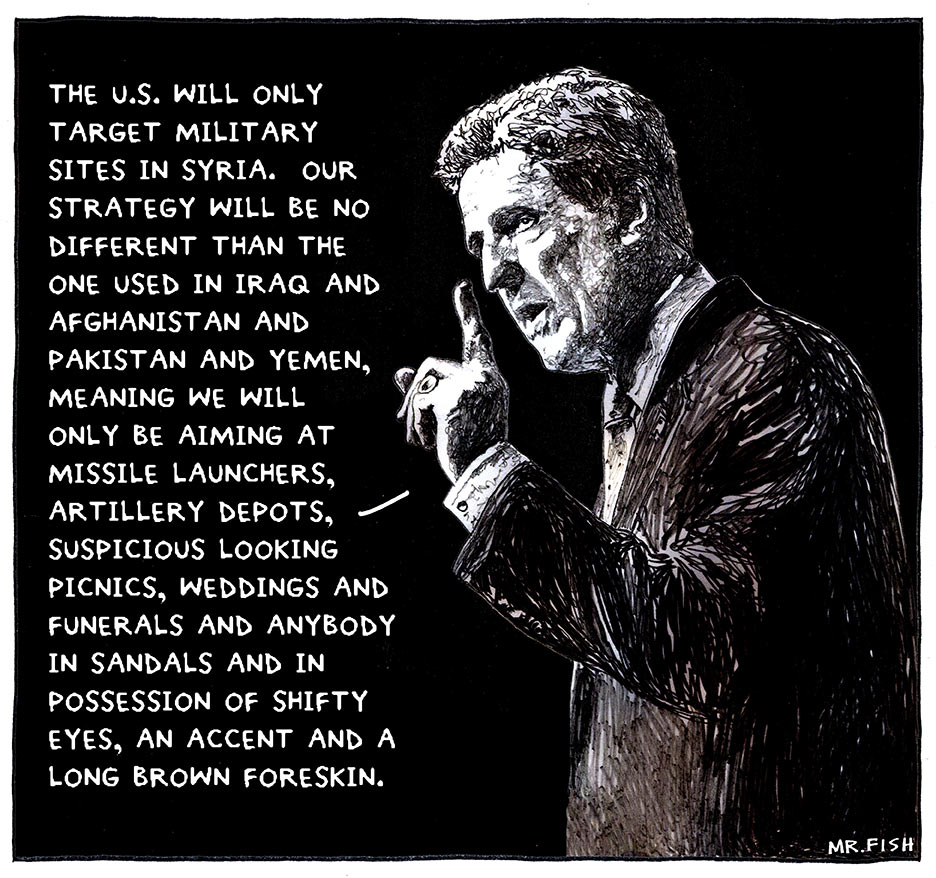And our dropping bombs and sending in cruise missles will no doubt kill more innocents.
Our bombs and missiles are aimed towards the perpetrators, not the innocents. There's a huge difference.
If we really cared about innocents, our foreign policy would be completely different.
There are limits to what we can do.
Yes which is why I have no issue with sending weapons to the rebels. I have no problem whatsoever with providing the Syrian people the means to gain their freedom; but it must be the Syrians themselves that gain that freedom.
The problem is that the rebels are extremists, include Al-Qaeda, and would no doubt genocide unwanted religious groups once they take control. Arming the rebels is not an option.
There is absolutely no reason to send our soldiers to fight a war they do not understand or have any stake in.
A soldier's duty is to the country and to the mission. The soldiers need not understand the war. That is the task of leaders and generals.
The soldiers need merely to be willing to give up their lives and psyches for the greater good.
That is why military service is to be honoured.
By that, I mean only the Syrian people truly understand why they had to rebel against Assad which is why they are fighting his regime so fervently. On the other hand, our soldiers don't understand Syrian society and culture; they don't have a true understanding of the crimes Assad committed that pushed his people to rebellion. So how hard do you think our soldiers are going to fight in a war they have no understanding of and does not threaten their homeland or loved ones in any way, shape, or form?
The reason I argue so much against our intervention in Syria is not because I do not care about their plight.
We differ here.
It's just that I have seen combat and I have seen the horrific secondary effects of war on both our soldiers and the civilians who's country we occupied. After that, I can tell you that just about anybody who has personally experienced any kind of warfare never wants to do it again unless it is absolutely necessary; when it is the absolute last resort. And in the case of Syria, I don't think we've reached that threshold yet. There is still much that can be done to assist the rebels without actually committing troops to the conflict.
If the assumption is that "we haven't reached that threshold yet", I completely agree with you. If the assumption is that "it is absolutely necessary", I completely disagree with your non-interventionist stance.
The main issue is whether there are other avenues. We cannot allow the use of chemical weapons to be tolerated. But neither can we dive into something that we aren't sure about.
Please note that I completely respect your wartime experiences. My belligerence against non-interventionists is towards those who write off war as "bad" without a further thought. A cultural farce.
No, we need to understand that war is terrible. We need to understand that it is to be avoided at all costs. But we must also understand that sometimes it is necessary.
Are we at this point now? This is what I've been straining my mind with. I don't have access to the same intel that the highest security clearance of the U.S. does. Should I trust the U.S. to make the right choice in the end? They fumbled the operation in Iraq, but that doesn't mean that they will do so in the future. So I honestly don't know.


